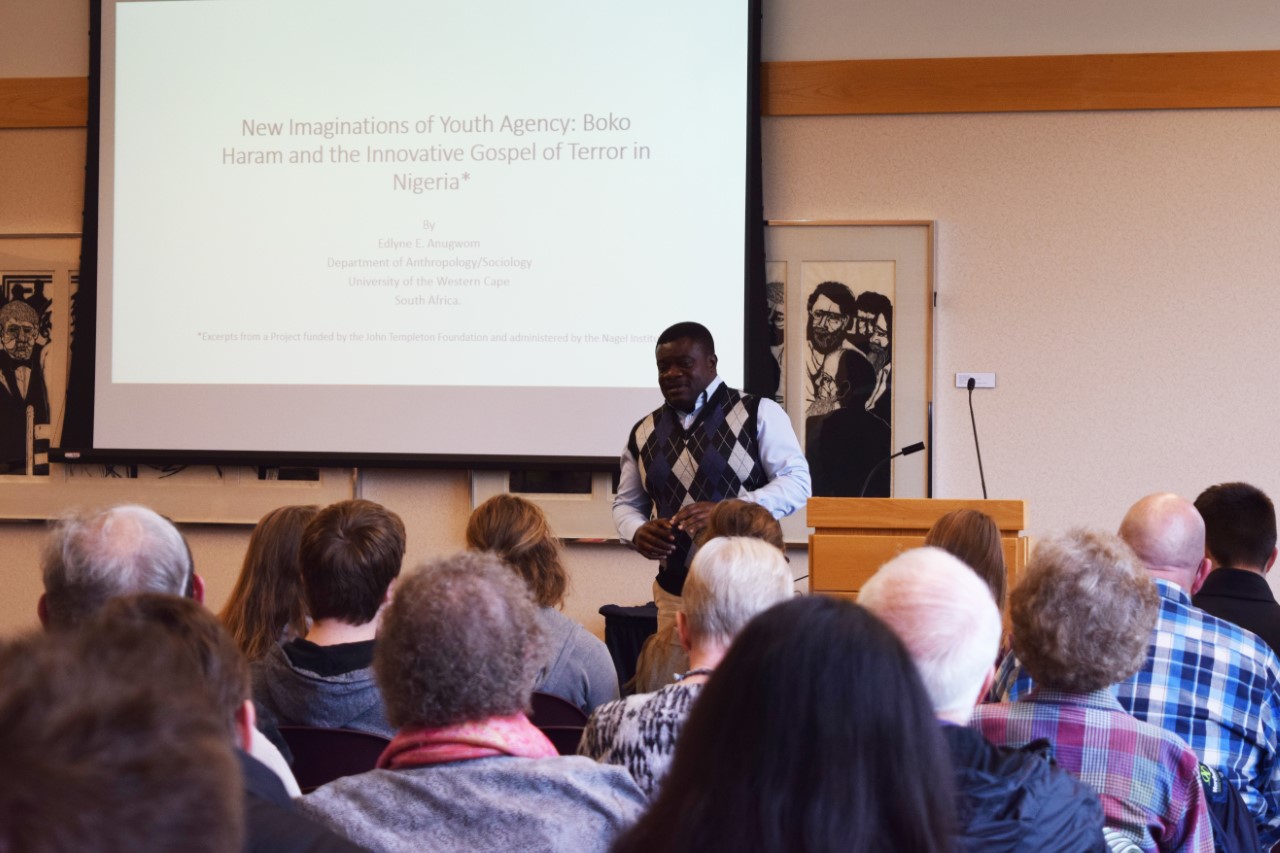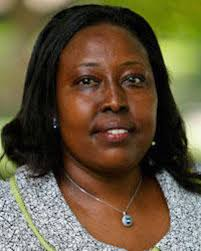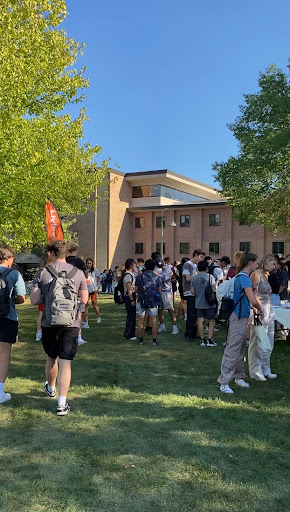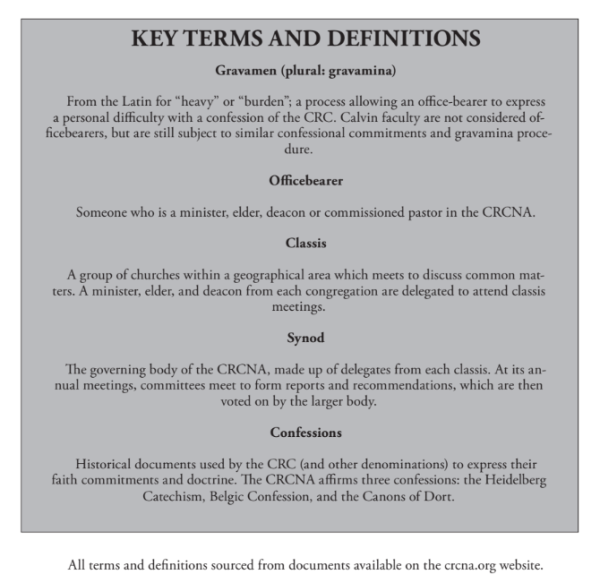Investigating a “Gospel of Terror”
Recent instances of international and domestic terrorism have led to pervasive fear of Muslim extremist groups like ISIS and Boko Haram. In response to this fear, Professor Edlyne E. Anugwum, a Nigerian anthropologist and professor at the University of the Western Cape, has been researching Muslim extremist groups. In his lecture “Boko Haram and the Gospel of Terror” on Nov. 2, 2016, Anguwum discussed what Boko Haram is, what makes it different from other Islamic extremist organizations and proposed solutions to the systemic problems giving rise to the terrorist organization. The lecture was sponsored by the Nagel Institute and hosted at the Prince Conference Center.
Auguwum refers to Boko Haram as an Islamic fundamentalist organization, hence the term “Gospel” of Terror. It is founded on the belief that both infidels (those who have never believed in Islam and do not come from an Islamic background), and apostates (those who have left Islam) deserve death, and all true Muslims are obligated to perform Jihad against them.
The focus of Anguwum’s research was to determine the extent to which Boko Haram “represents an innovative youth agency webbed around religion and socio-political marginalization.” First, Anguwum addressed the regional and cultural origin of the organization — the north-east of Nigeria. This region is, according to Anguwum, “a picture of severe poverty, social exclusion and marginalization, especially among youth.”
Unlike other militant groups Anguwum has studied, Boko Haram is unpredictable and uses bombs which “do not discriminate [between specific targets and non-targets].” The group is also composed almost entirely of young people, mostly young men. “No one is over 40 and most of [the members of Boko Haram] are young men in their 20s,” said Anguwum. This is because young people are most affected by severe socio-economic privations. Also, many of these individuals participated in the Amagarai System, a custom in which young boys are sent away from home to study Islam and learn how to “overcome the desires of the flesh.” As a result, these young men become easy targets for Boko Haram recruiters who offer opportunity for power and a sense of purpose.
In addition to conducting violence against Muslims as well as non-muslims, being unpredictable and being composed almost entirely of youth, Boko Haram also actively uses media, predominantly YouTube, as a tool for “proselytization and terror.”
To address Boko Haram, Auguwum suggests a multi-pronged solution: de-radicalization (contextualizing the issue to understand its cause), economic regeneration (though not as a sole cure), youth programs to provide apprenticeships to provide opportunities for power outside of radical organizations and a total withdrawal of government from religion.







